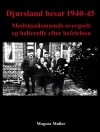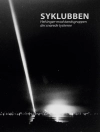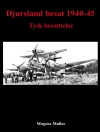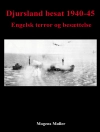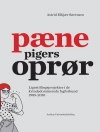Countless studies have assessed the dramatic reforms of Mikhail Gorbachev, but their analysis of the impact on European communism has focused overwhelmingly on the Soviet Union and Eastern bloc nations. This ambitious collection takes a much broader view, reconstructing and evaluating the historical trajectories of glasnost and perestroika on both sides of the Iron Curtain. Moving beyond domestic politics and foreign relations narrowly defined, the research gathered here constitutes a transnational survey of these reforms’ collective impact, showing how they were variably received and implemented, and how they shaped the prospects for “proletarian internationalism” in diverse political contexts.
İçerik tablosu
Introduction: Perestroika or about the Demise of the Communist World?
Francesco Di Palma
PART I: EASTERN EUROPE
Chapter 1. The Impact of Perestroika and Glasnost on the CPSU’s Stance toward the “Fraternal Parties” in the Eastern Bloc
Peter Ruggenthaler
Chapter 2. Soviet Society, Perestroika, and the End of the USSR
Mark Kramer
Chapter 3. Perestroika Made in Hungary? The HSWP’s Approach to the Soviet Reform of the Late-1980s
Tamás Péter Baranyi
Chapter 4. Yugoslavia and Perestroika 1985-1991: Between Hope and Disappointment
Petar Dragišić
Chapter 5. The Polish United Workers Party and Perestroika
Wanda Jarząbek
Chapter 6. SED and Perestroika: Perceptions and Reactions
Hermann Wentker
Chapter 7. Between External Constraint and Internal Crackdown: Romania’s Non-Reaction to Soviet Perestroika
Stefano Bottoni
PART II: WESTERN EUROPE
Chapter 8. Parallel Destinies: The Italian Communist Party and Perestroika
Aldo Agosti
Chapter 9. “I felt as if I was faced with a French Honecker”: The French Communist Party Confronted with a World that was Falling Apart (1985-1991)
Dominique Andolfatto
Chapter 10. A Dialogue of the Deaf: The CPGB and the SED during the Gorbachev Era (1985-1990)
Stefan Berger and Norman La Porte
Chapter 11. Premature Perestroika: The Dutch Communist Party and Gorbachev
Gerrit Voerman
Chapter 12. The Perestroika and the Greek Left
Andreas Stergiou
Chapter 13. The Austrian Communists and Perestroika
Maximilian Graf
Chapter 14. The Spanish Communist Party and Perestroika
Walther L. Bernecker
Afterword: Gorbachev and the End of International Communism
Silvio Pons
Index
Yazar hakkında
Francesco Di Palma (1980) is Associate Professor at the University of Vienna and Project Researcher at the German Historical Institute in Rome. A former Teaching Fellow at the Freie Universität Berlin and at the Hebrew University of Jerusalem, he has published widely on European socialism and communism, fascism and antifascism, and cultural and Jewish history.



